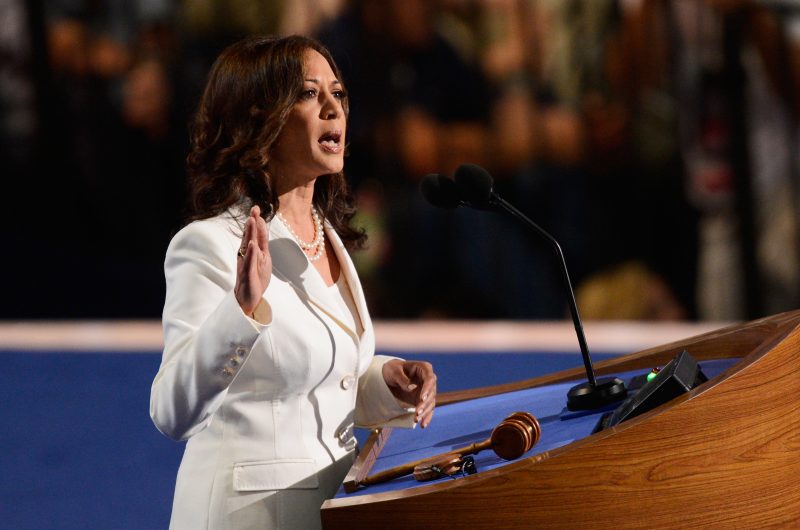When Vice President Kamala Harris walks onstage Thursday to formally accept the Democratic presidential nomination, it will mark another milestone in her remarkable journey to the top echelons of power that began more than a decade ago at another party convention.
It was in September 2012 when Harris, as California’s attorney general, made her first major national appearance at the Democratic National Convention in North Carolina to champion President Barack Obama for a second term. Harris was already considered a rising star in the party and well known for her barrier-breaking roles as San Francisco district attorney and California attorney general.
She strode onstage on the second night of the convention, dressed in a sharp white dress suit and a double strand of pearls, a color often favored by Democratic women as a mark of honor to the suffragists.
“The choice between Barack Obama and Mitt Romney is clear,” Harris said in her 2012 speech, which focused on casting Obama as a champion of the middle class and his Republican opponent Mitt Romney as a Wall Street ally.
“Here’s what President Obama did. President Obama won Wall Street reform to prevent any more tax-funded bailouts. President Obama won credit card reform so you don’t get stuck with hidden fees and sudden rate hikes,” she said, praising Obama’s leadership in the aftermath of the 2008 financial crisis.
“President Obama stood with me and 48 other attorneys general in taking on the banks and winning $25 billion for struggling homeowners. That’s leadership,” Harris added.
Ellen Fitzpatrick, author of “The Highest Glass Ceiling: Women’s Quest for the American Presidency,” said Harris “is very much the Kamala Harris we are seeing in 2024,” as she has continued to stress the need for economic opportunities for the working and middle classes, invokes patriotism and remains critical of the policies that favor the wealthy.
“I’m struck by how vital and vivacious she was then and how powerfully these qualities are resonating today,” Fitzpatrick said by email.
Convention speeches offer aspiring candidates a powerful platform to vault into national consciousness.
Harris also used the moment in 2012 to introduce parts of her own story, touching upon her middle-class upbringing. “I remember when my mother, Shyamala Harris, bought our first home. I was 13. She was so proud and my sister and I were so excited,” she said, adding that millions of Americans can relate to the feeling of walking through the front door of their first home.
She drew upon the theme of the American Dream, seeking to draw a contrast between the visions of the Democrats and the Republicans.
“It’s a choice between an America where opportunity is open to everyone, where everyone plays by the same set of rules, or a philosophy that tilts the playing field to help the wealthiest few,” Harris said.
In conclusion, she said: “The American Dream belongs to all of us.”
Her speech, however, failed to capture national attention. The Washington Post at the time described her delivery as “low-key” and said the “crowd seemed unsure of when to clap even during her most obvious applause lines.”
The response was markedly different when she walked out onstage in a tan suit at the Democratic convention in Chicago in a surprise appearance on Monday. The crowd roared and gave her a standing ovation. She used the moment to laud President Joe Biden and acknowledge the delegates gathered from across the country.
“Looking out at everyone tonight, I see the beauty of our great nation. People from every corner of our country and every walk of life are here, united by our shared vision for the future of our country,” she said.
On Thursday night, in the biggest speech of her political career, she is expected to introduce her life story, The Post reported.
In 2020, ahead of her vice-presidential nomination, Harris’s campaign posted a throwback image from her 2012 appearance.
Brian Brokaw, who managed Harris’s campaign for attorney general in California and who was at the Democratic National Convention in 2012, said her speech that night did not have the same short-term impact as Obama’s did in 2004 — a moment that essentially launched him toward the presidency.
“And I look back now thinking — perhaps if many of those in the room had seen what some of us knew about Kamala early on — they would’ve paid a little closer attention to someone who would be accepting the party’s nomination for president just a decade or so later,” he said by email.
“Regardless, they will get their chance on Thursday night, just as the rest of the country and the world gets to know the Kamala we know,” he said.








